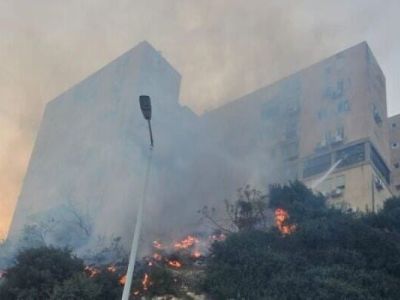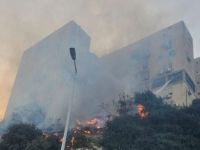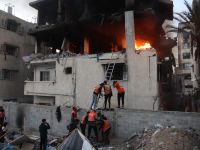Algiers was recovering Friday after violent clashes between police and protesters led by ethnic Berbers put new pressure on the government of embattled President Abdelaziz Bouteflika, said reports.
The rioting Thursday, during which protesters hurled stones at police, ransacked and torched public buildings and smashed shop windows in several parts of the city, left two journalists dead and 168 people injured, according to AFP.
Al Jazeera satellite channel put the number of injured at 400, and said the two journalists were rammed by a car one protestor drove during the protests in which hundreds of thousands ethnic Berbers and their supporters took part.
City cleaners were called to work on Friday, normally the weekly holiday in Muslim Algeria, to begin mopping up after the biggest demonstration in the north African country since independence, said the agency.
The protesters shouted slogans accusing the government of abuse of power and using strong-arm tactics in the Berber homeland of Kabylie, where dozens were killed in a police crackdown on riots in April and May, prompting repeated calls for the paramilitary police to leave the region.
At the height of Thursday's unrest, an AFP correspondent saw police firing live bullets on protesters in the port area, where some had begun looting warehouses.
But Algeria's Interior Ministry denied police had fired live ammunition, and said authorities had tried to remain calm despite the rioting and looting in the capital.
An MP speaking to Al Jazeera on Thursday said that the high number of injuries was due to the fact that residents of the capital had clashed with the protestors.
Bouteflika last Friday called the Berber unrest "an unpredictable bomb that exploded at a time when civil harmony was about to bear fruit, and when Algeria was about to regain its real place on the national stage, rebuild and launch an economic renewal programme."
His government has remained largely silent over the unrest, although the head of the gendarmerie told Tuesday's edition of an Arabic-language daily that his men would never leave Kabylie.
"We have never considered this demand, and we never will," he said, according to AFP – Albawaba.com
© 2001 Al Bawaba (www.albawaba.com)









